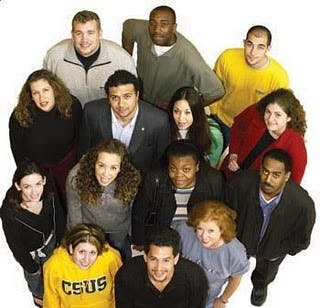The Millennial generation is the most polarizing topic of discussion among the professional HR community right now.
Are they THAT different? Do they REALLY get what we are trying to do? Are they as productive as everyone else, or not?
These are all questions that start interesting debates. But in the end, they’re the wrong questions to ask.
Most of the interactions I’ve had with clients around Millennials are focused on engagement, helping young employees succeed within an organization. Companies want to know how to motivate them and what incentives and benefits appeal to the best young talent.
These conversations are usually about acclimating Millennials to a current system – but the best way to approach the Millennial conundrum may be to think about the inverse.
Growing importance of the next generation
Millennials are becoming more important to employers. More are joining the workforce each day and those starting in entry-level positions are taking on more responsibility. Warranted or not, this generation has already caught a lot of flak from people of all ages. An example from a national poll conducted in September:
- 68 percent of American workers of all ages felt that Millennials are less motivated to take on responsibility and produce quality work compared to their counterparts.
- And a surprising 55 percent of Millennials echoed the same sentiment about their generation.
Statistics like these are important for short-term considerations about engagement and productivity, but there is data out there that is more telling. Things like:
- 75 percent of working Millennials say workplace training would be more valuable if they were available on mobile technology.
- 45 percent of Millennials would accept a lower-paying job with more flexibility towards social media access, remote work and technology choice than a higher-paying job with less flexibility.
Regardless of whether feelings about Millennials’ motivation and work ethic are more perception than truth, it is imperative to remember this:
Millennials are the future leaders of the business community, and they WILL change the norms.
Instead of trying to figure out how Millennials can be groomed to fit the current mold, employers need to start thinking about how their organizations can change to incorporate what Millennials are bringing to our workforce.
Shifting dynamics
To answer one of those questions posed earlier, no, the Millennial generation is not all that different. Every ‘next generation’ has an impact on how offices are run and how business is done – and Millennials will have theirs. They grew up with more technology and are more comfortable with digital communication, but those are superficial footnotes that can be embraced rather than just being noticed.
Workplace norms change with each generation. In 20 years, Millennials will be the ones with gray hair asking questions about why the youngsters born in the 2010s just don’t seem to ‘get it’ like they did.
These generational conversations are cyclical, but the important questions to consider about Millennials right now are these:
Should you focus on making Millennials work for your business as it is right now? Or should you focus on making your business work for Millennials down the road?
